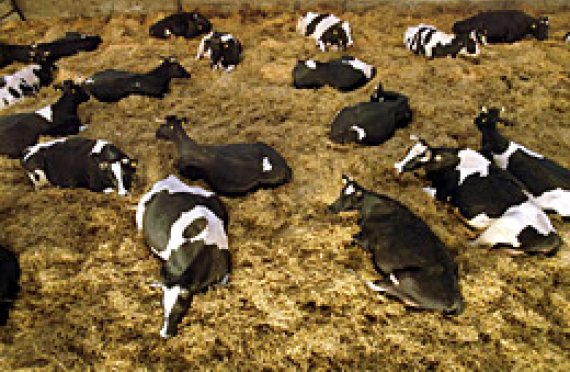By adding soil to their manure and then keeping it airtight under covers, farmers can cut ammonia emissions significantly. This finding came out of research by the Wageningen PhD student Ghulam Abbas Shah. ‘Fascinating,’ says research supervisor Egbert Lantinga, referring to the conclusion that farmers can add soil to their fertilizer in order to reduce both nitrogen losses and ammonia emissions. This simple step delivers big gains for the environment while costing the farmers very little.
Shah did his research in the cowshed at the university’s organic experimental farm, Droevendaal. Amongst other things, he tested the effect of three additives: zeolite (a volcanic rock), lava powder (ground volcanic rock) and sandy soil from the farm. The first two are already in commercial use to reduce ammonia emissions, but they are quite expensive.
Zeolite works best. The mineral cut ammonia emissions in the barn by 85 percent when half a kilo per cow was used per day. Remarkably, though, the sandy soil had exactly the same effect, as long as you used three times as much. Lantinga: ‘So you don’t really need those commercial additives at all.’ An additional advantage of the method is that retaining nitrogen enriches the manure, leading to higher yields of grass and maize. This was shown by another test carried out by Shah.
The Pakistani PhD student also investigated how much nitrogen was lost during storage of the solid manure on the farm. Usually the dung heap stands uncovered on the farm and large amounts of nitrogen are lost to various decomposition processes. Taking note of research abroad, Shah concluded that it would be better if livestock holders kept the manure airtight because nitrogen losses are limited in anaerobic conditions. The combination of adding sandy soil and airtight storage delivers big environmental gains.
Ghulam Abbas Shah received his PhD on 9 September from Peter Groot Koerkamp, professor of Agrotechnology

